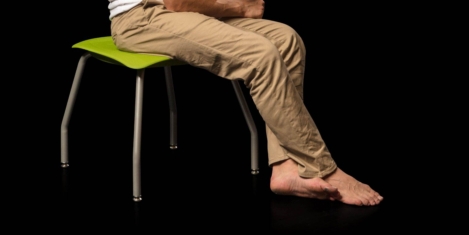October 5, 2017
Rising numbers of employees face demotion, disciplinary action or dismissal for disclosing mental health issues
 Most UK employees have experienced mental health issues because of work yet over a million people face negative consequences after disclosing, according to a new report, Mental Health at Work published by the charity Business in the Community in advance of World Mental Health Day. YouGov surveyed over 3,000 people in work across the UK for the study and found that three in five (60 percent) employees have experienced mental health issues in the past year because of work. Yet despite 53 percent of people feeling comfortable talking about mental health at work, a significant percentage of employees risk serious repercussions for disclosing a mental health issue. 15 percent of employees face dismissal, disciplinary action or demotion after disclosing a mental health issue at work (almost twice the number identified in similar research undertaken in 2016). Scaled up to the general working population, this could mean as many as 1.2 million people negatively affected for disclosing mental health problems.
Most UK employees have experienced mental health issues because of work yet over a million people face negative consequences after disclosing, according to a new report, Mental Health at Work published by the charity Business in the Community in advance of World Mental Health Day. YouGov surveyed over 3,000 people in work across the UK for the study and found that three in five (60 percent) employees have experienced mental health issues in the past year because of work. Yet despite 53 percent of people feeling comfortable talking about mental health at work, a significant percentage of employees risk serious repercussions for disclosing a mental health issue. 15 percent of employees face dismissal, disciplinary action or demotion after disclosing a mental health issue at work (almost twice the number identified in similar research undertaken in 2016). Scaled up to the general working population, this could mean as many as 1.2 million people negatively affected for disclosing mental health problems.







 Employees who feel trusted by their employer to manage how and when they work for themselves can improve their levels of productivity, a new survey suggests. The research by Peldon Rose claims that UK workers rate feelings of trust and autonomy from employers and colleagues as increasingly important in keeping them productive and happy in the workplace. But the survey also shows that many employers are failing to provide employees with the resources and support they need to manage their workload and keep them motivated. Although the majority of staff (59 percent) say they work most productively in the office, a third (33 percent) wish they were more trusted to manage how and when they work and 42 percent say that their office does not support a culture that allows them to work flexibly. Despite the clear value that staff place on trust and autonomy, employers are overlooking an opportunity to create a confident and self-motivated workforce.
Employees who feel trusted by their employer to manage how and when they work for themselves can improve their levels of productivity, a new survey suggests. The research by Peldon Rose claims that UK workers rate feelings of trust and autonomy from employers and colleagues as increasingly important in keeping them productive and happy in the workplace. But the survey also shows that many employers are failing to provide employees with the resources and support they need to manage their workload and keep them motivated. Although the majority of staff (59 percent) say they work most productively in the office, a third (33 percent) wish they were more trusted to manage how and when they work and 42 percent say that their office does not support a culture that allows them to work flexibly. Despite the clear value that staff place on trust and autonomy, employers are overlooking an opportunity to create a confident and self-motivated workforce.












 Nearly three quarters (70 percent) of employers say it’s healthy for employees to have someone to confide in at work, according to new research, but it claims, 1 in 4 employees would consider leaving the company if their friend left. The totaljobs research which featured responses from over 4,000 employees and 103 employers on the latest trends in workplace relationships and office politics found that two thirds (65 percent) of UK workers are finding ‘work spouses’ in the office – that one person who they are very close. Although over half of employers (56 percent) say strong work friendships increase productivity and 60 percent of work spouses say their relationship means ‘they look forward to going into work’, which can help improve staff retention, 1 in 4 (23 percent) say if their friend left, they would consider leaving themselves. Nearly one in 10 (7 percent) go as far as to say that their work spouse leaving the company would be ‘like a bereavement’.
Nearly three quarters (70 percent) of employers say it’s healthy for employees to have someone to confide in at work, according to new research, but it claims, 1 in 4 employees would consider leaving the company if their friend left. The totaljobs research which featured responses from over 4,000 employees and 103 employers on the latest trends in workplace relationships and office politics found that two thirds (65 percent) of UK workers are finding ‘work spouses’ in the office – that one person who they are very close. Although over half of employers (56 percent) say strong work friendships increase productivity and 60 percent of work spouses say their relationship means ‘they look forward to going into work’, which can help improve staff retention, 1 in 4 (23 percent) say if their friend left, they would consider leaving themselves. Nearly one in 10 (7 percent) go as far as to say that their work spouse leaving the company would be ‘like a bereavement’.











August 23, 2017
I’ve got some real estate here in my bag
by Paul Carder • Comment, Flexible working, Property, Technology
We’ll marry our fortunes together.
I’ve got some real estate
Here in my bag.
So we bought a pack of cigarettes,
And Mrs. Wagner’s pies,
And walked off
To look for America.
“Kathy”, I said,
As we boarded a Greyhound in Pittsburgh,
Michigan seems like a dream to me now.
More →